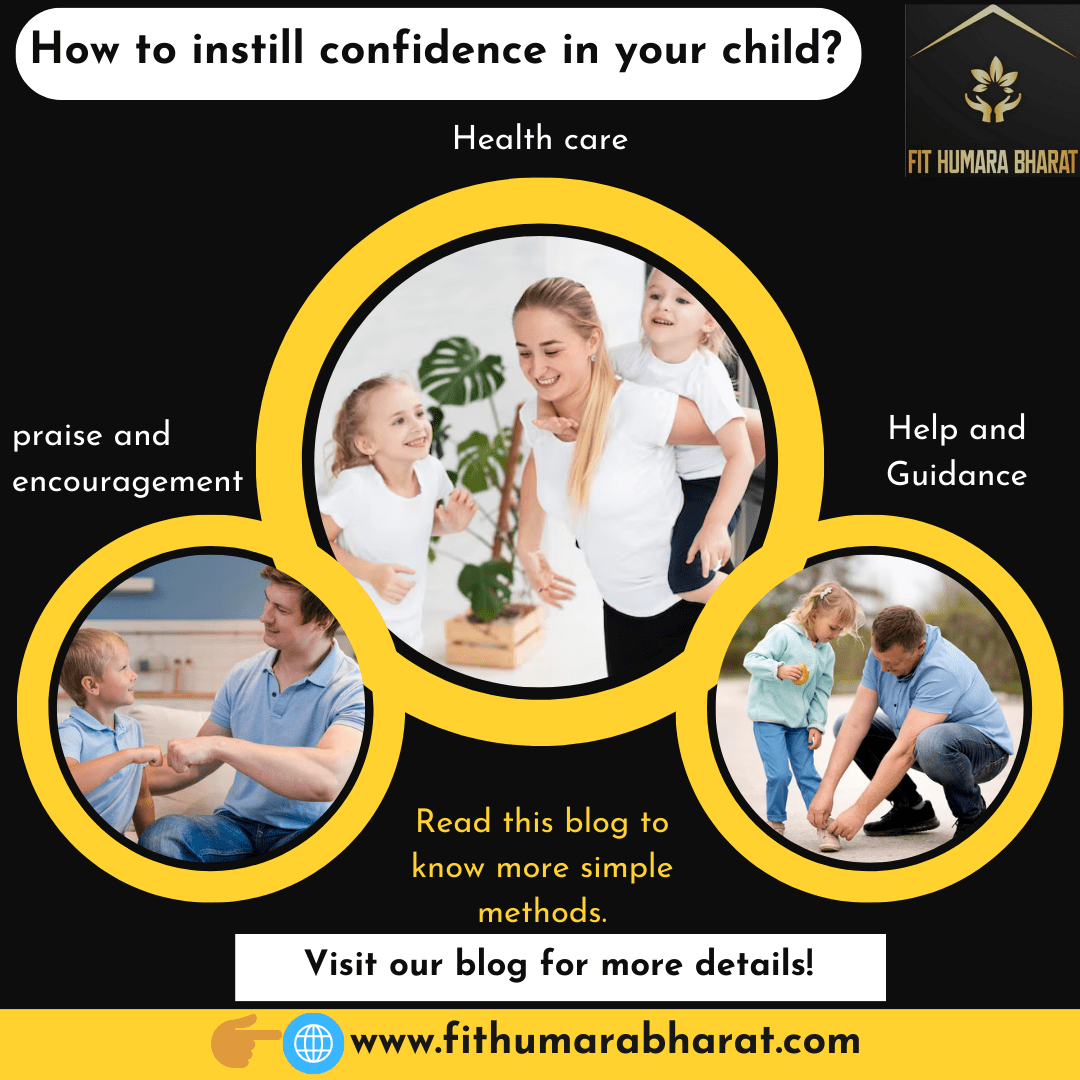This post is also available in:
हिन्दी
In this article today we are talking about children, you all know that children are like an earthen pot, they get molded in the same shape in which they are molded.
Children’s self-confidence is an important part of their personal development. It helps them to reach the heights of success and makes them feel proud of their skills.
If the child has self-confidence, then he will do any difficult task easily, or he will definitely try once to do that difficult task, which is very important.
"It's difficult, I can't do it" is a sign of low self-confidence and it's not a good thing to have in kids.
As a sensible parent, we should make every possible effort to boost the self-confidence of our child. Following are some simple and effective ways to increase the confidence of the child:

1. Praise and encouragement
Always praise your child for their progress. Help them appreciate their hard work and convince them that they can always do better. This will increase their motivation and strengthen their confidence. If the child makes a mistake at some point of time, instead of scolding him, you should explain his mistake to him and also show him the right direction. This will increase his confidence and he will be successful in his work.
2. Communication Skills
When interacting with your child, make sure that you listen to them and value their opinions. They will have a sense of surrender that their words matter and they are important. Don’t talk to children all the time, because of this, they will hesitate to say their words in future.
3. Positive thinking
Teach children how positive thinking can boost their confidence. Teach them that difficulties may arise, but looking at them in a positive light helps to find solutions to problems.
4. Use of work opportunities in the right way
Explain to the child that every new situation is an opportunity to use it. Teach them the art of utilizing work opportunities in the right way so that their confidence can grow.
5. Recognition of their skills
Help children identify their interest areas and give them opportunities to master there. As they master their skills, their confidence automatically grows.
6. Struggle for failure
Teach kids that failure doesn’t just mean taking a step back, but rather an opportunity to learn and improve. Make them understand that despite failure, they can move ahead with hard work and dedication. They should be explained that there are many ups and downs in life and they should not be afraid of them.
7. Health Care
Take care of the physical and mental health of the children. Get them into the right eating, enough sleep, and exercise habits to improve their health. A healthy body and mind also boost their confidence.
8. Help and Guidance
Explain to your child that they will have your help and guidance at any time. Also teach them that there is nothing shameful in asking for help and that it is important for their development.
9. Independence and Responsibility
Teach children how to develop a sense of responsibility. While giving them autonomy for their actions, teach them to take responsibility for their actions.
10. Inspiration and Example
You yourself can be a role model for your child. By your example, they can learn how to fight and find solutions to problems the right way.
Developing children’s self-confidence is an important responsibility of parents. Positive appreciation, communication skills, positive thinking, and utilizing work opportunities in the right way are some of the important steps for this. With your help and inspiration, your children will be full of confidence and on their way to a successful life.
Thank You
- Family Environment and Self-Esteem Development: A Longitudinal Study from Age 10 to 16
- Children’s understanding of when a person’s confidence and hesitancy is a cue to their credibility
- Confident Body, Confident Child: Outcomes for Children of Parents Receiving a Universal Parenting Program to Promote Healthful Eating Patterns and Positive Body Image in Their Pre-Schoolers—An Exploratory RCT Extension
- Change in quality of life and self-esteem in a randomized controlled CBT study for anxious and sad children: can targeting anxious and depressive symptoms improve functional domains in schoolchildren?
- Parents’ Response to Children’s Performance and Children’s Self-Esteem: Parent–Child Relationship and Friendship Quality as Mediators




 Sources
Sources झक-मारके आपके पीछे आएगी! देखे क्या कहता है – ज्ञान, विज्ञान, मनोविज्ञान
झक-मारके आपके पीछे आएगी! देखे क्या कहता है – ज्ञान, विज्ञान, मनोविज्ञान